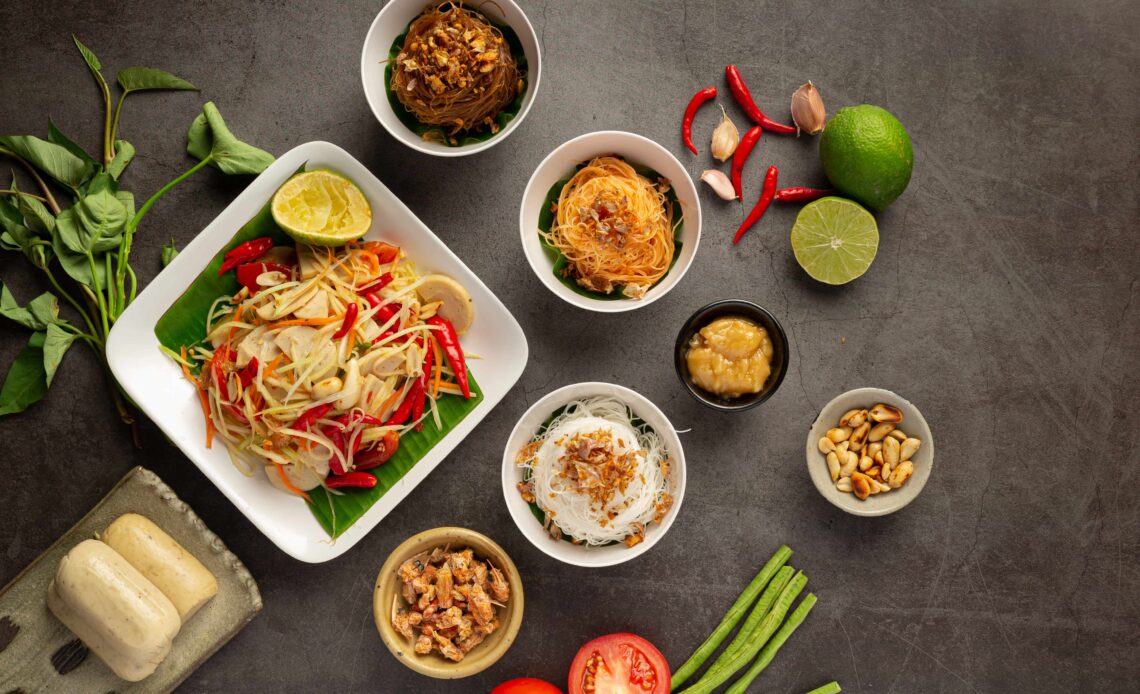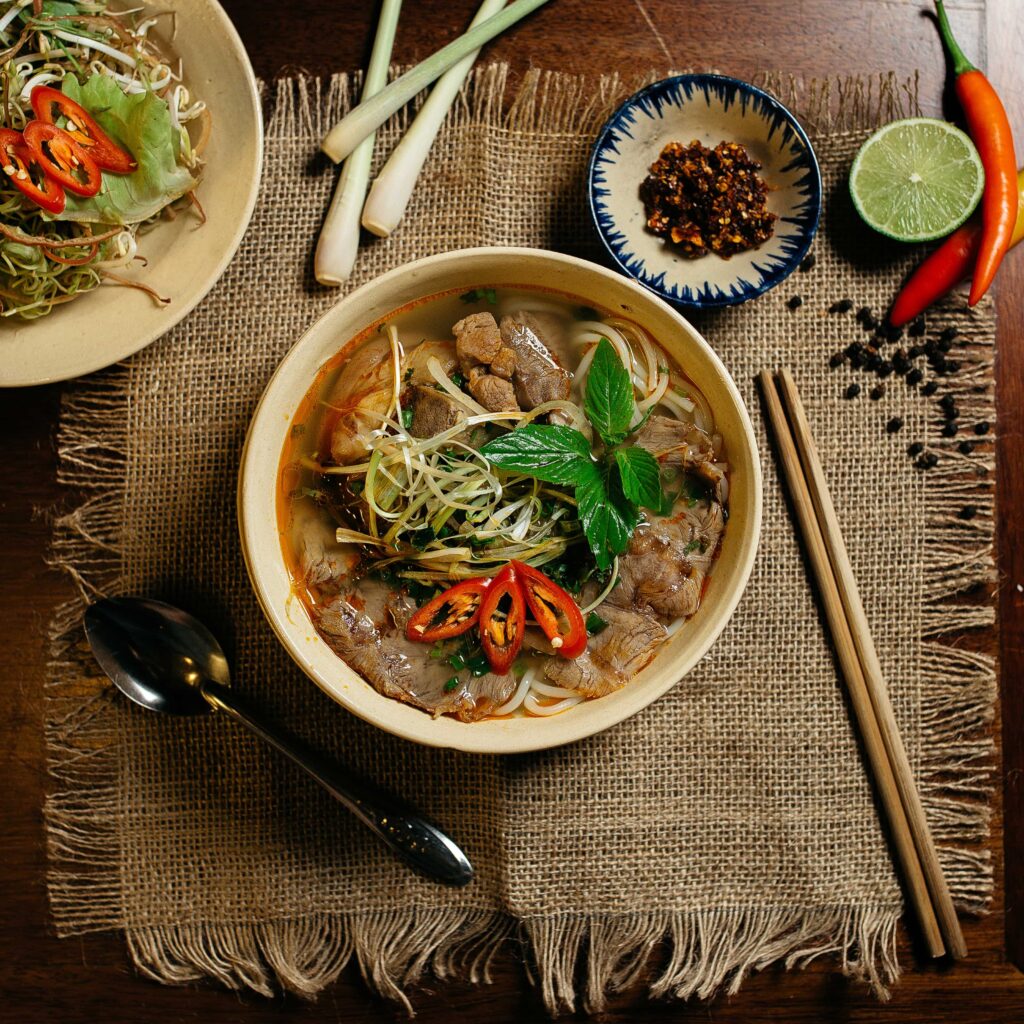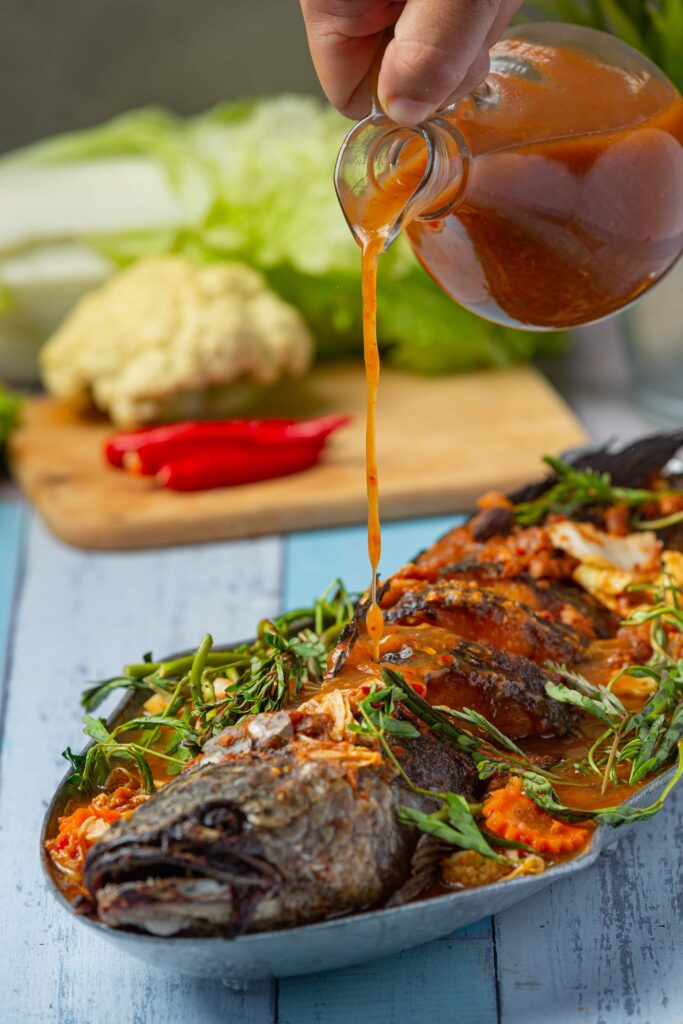
Vietnamese Food has won over people all over the world with its vibrant flavours, light yet filling dishes, and fresh herbs. However, many people are unaware of the wealth of nutritional advantages that lie beyond the mouthwatering flavour. I’ve studied Asian dietary patterns for years as a nutritionist, and I’ve found some amazing health facts about Vietnamese food that may surprise you.
Anyone interested in clean eating can learn a lot from Vietnamese eating habits, which emphasise moderation and balance as well as the strategic use of herbs and spices. Many of the tenets advocated by contemporary nutritionists, such as an abundance of vegetables, lean proteins, minimal processing, and careful portion control, are naturally incorporated into the cuisine.
Table of Contents
Compared to most superfoods, Vietnamese herbs contain more antioxidants.

Fresh herbs are frequently used in Vietnamese cuisine, but few people are aware of how nutrient-dense these verdant additions can be. In addition to being garnishes, herbs like Vietnamese coriander, Thai basil, cilantro, and mint are also nutritional powerhouses that can compete with pricey superfood supplements.
Eugenol and rosmarinic acid, two substances found in Thai basil, have potent anti-inflammatory effects. While mint helps with digestion and has cooling qualities that make Vietnamese food especially refreshing, fresh cilantro aids in the body’s detoxification of heavy metals.
Natural Electrolytes and Healing Compounds in Pho Broth
In reality, that cosy bowl of pho you adore is an advanced nutritional delivery system. A natural electrolyte solution that rivals any sports drink is produced by simmering traditional pho broth with bones, star anise, cinnamon, and other spices for hours.
While the spices add anti-inflammatory compounds, the lengthy cooking process draws minerals from the bones, including calcium, magnesium, and phosphorus. The antiviral medication Tamiflu is made from shikimic acid, which is also found in star anise. Cinnamon has antibacterial qualities and aids in blood sugar regulation.
Better Than Yoghurt, Vietnamese Fermented Foods Promote Gut Health
Numerous fermented foods found in Vietnamese cuisine contribute to a varied and healthful gut microbiome. Dishes like pickled vegetables, fermented fish sauce, and fermented shrimp paste introduce beneficial bacteria that support digestive health.
The fermentation process increases the nutritional value of these foods while preserving them without refrigeration. Fermented vegetables have higher levels of vitamins B and K2, and the fermentation process makes minerals more bioavailable.
Compared to Western methods, Vietnamese cooking preserves more nutrients.
Vietnamese cooking methods are surprisingly nutrient-friendly. Heat-sensitive vitamins, such as vitamin C and folate, are preserved when foods are frequently eaten raw or lightly cooked, steamed, or stir-fried quickly.
Healthy Weight Management Is Naturally Encouraged by Vietnamese Portion Sizes
Vietnamese food culture includes several practices that naturally support healthy weight management without restrictive dieting. Meals typically include multiple small dishes rather than one large plate, which encourages mindful eating and helps people recognize fullness cues..
Vietnamese dining also emphasizes communal eating and slower meal pacing. Sharing dishes from the center of the table naturally slows down eating speed, giving the brain time to register fullness signals. This prevents overeating and promotes better digestion.
Vietnamese fish sauce contains B vitamins and essential amino acids.

Fish sauce may seem like a simple seasoning, but it’s a concentrated source of essential amino acids and B vitamins. During the fermentation process used to make fish sauce, the proteins in fish are broken down into easily absorbed amino acids, including all nine essential amino acids that the body cannot produce on its own.
The traditional fish sauce production process also produces significant amounts of B vitamins, particularly B12, which can be challenging to obtain from plant-based diets. This makes Vietnamese food particularly beneficial for people who mainly follow plant-based diets.
Eating nutrient-dense foods free of added sugars and bad fats is made easier by the umami flavour compounds in fish sauce, which also enhance the flavour of vegetables and other foods.
Vietnamese Tea Culture Offers Antioxidants and Encourages Hydration
Tea, which offers more health advantages than just hydration, is a traditional component of Vietnamese meals. Catechins and other antioxidants found in green teas, jasmine teas, and herbal teas popular in Vietnamese culture promote cardiovascular health and may help prevent some types of cancer.
To provide a steady antioxidant intake throughout the meal without being overly caffeinated, Vietnamese tea preparation frequently consists of several light steepings rather than a single strong brew.
Adopt Vietnamese Dietary Practices for Improved Health
Modern nutritionists are only now starting to recognise the masterclass in intuitive, healthful eating that Vietnamese cuisine offers. A dietary pattern that promotes long-term health and well-being emphasizes fresh ingredients, delicate cooking techniques, well-balanced flavours, and mindful eating habits.
Think about trying your hand at making Vietnamese food at home or going to authentic Vietnamese restaurants. This tasty path to improved health will be appreciated by both your body and your taste buds.
conclusion
Vietnamese food is more than just delicious; it’s a celebration of healthful, well-balanced eating that has its roots in centuries-old customs. Every dish exhibits a natural harmony that promotes general well-being, from light broths and fresh herbs to minimal use of sugar and oil. By adopting Vietnamese cuisine and its mindful eating practices, you can feed your body nutritious, nutrient-dense foods while also enjoying delectable meals. Vietnamese food provides a revitalising and long-lasting route to better health, whether your goal is to maintain a healthy weight, enhance digestion, or just eat cleaner.
